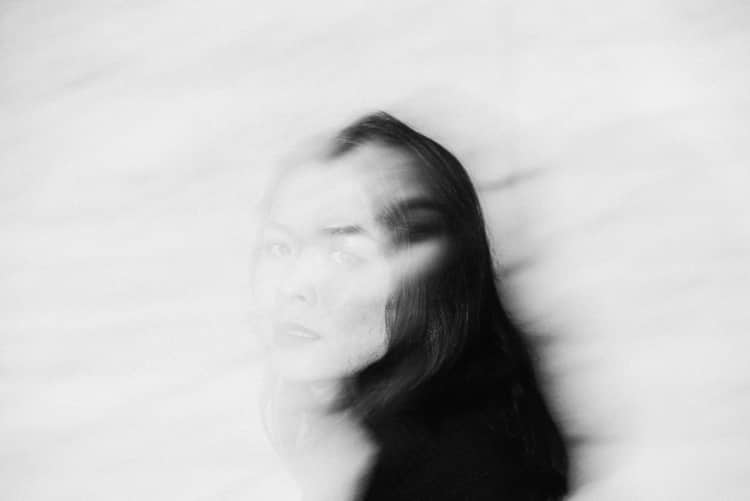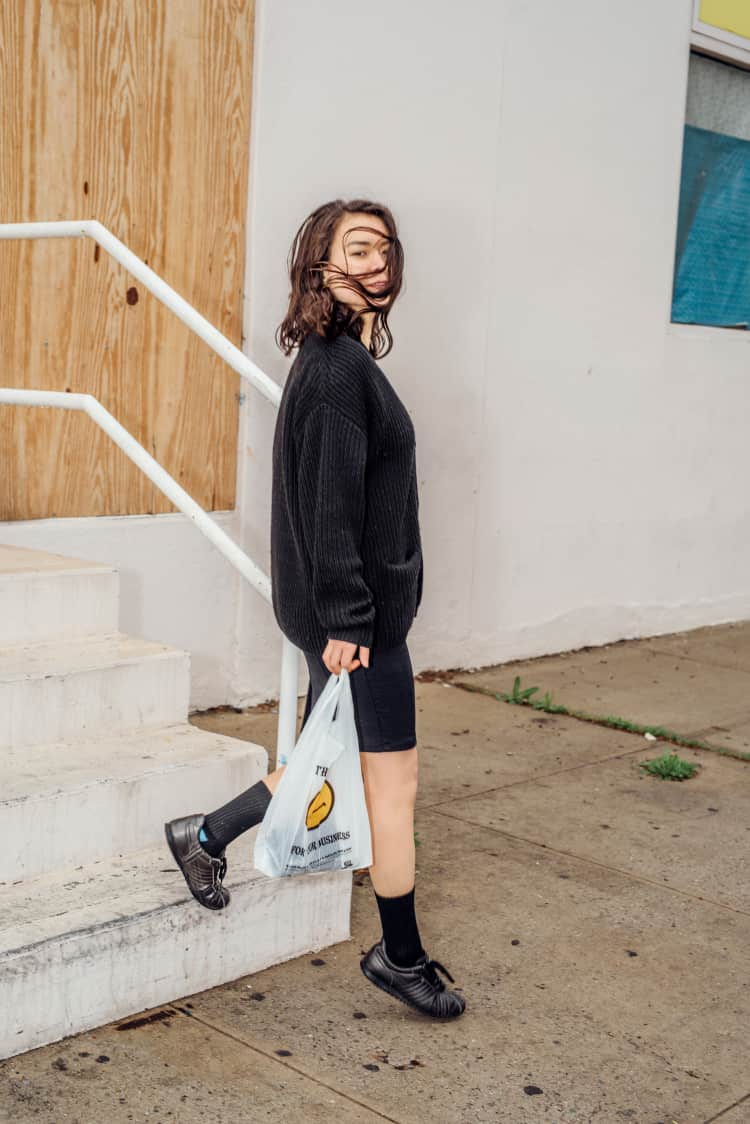Meet Mitski, An Electric Folk Singer Making Sad Songs For Grown-Ups
The 25-year-old reflects on minimalism, melancholy, and her unpredictable new album.

“If there’s anything I think of most, it’s proportion,” Mitski Miyawaki said on a recent afternoon at Silver Rice, a small Japanese cafe in Brooklyn. She was dressed in a boxy sweater with her long hair up in a bun, an efficiency outfit for running errands before leaving for a European tour the next day. “It’s very Japanese — space is important to me,” the 25-year-old, who releases music under her first name, explained when I asked about her metal-fork-in-an-outlet approach to pop song structures. “Western architecture is, like, columns and squares; everything is even. In Japan, there’ll be a painting with one dot on one end — that’s beauty. My sense of balance isn’t quite symmetrical.” This unevenness comes through on songs like “Happy,” from her new record Puberty 2, which starts with a choppy, isolated vocal, then introduces a clanking melody and Springsteen-style saxophone.

Mitski was born in Japan, but she grew up all over. “My dad worked for the State Department,” she said. “I lived in a dozen countries. I could list them, but it would make me sound like an asshole.” She’s just as hesitant to reveal things without first polishing them into something less identifiable in her music, using melody and metaphor to obscure details of her inner life. This veiled thoughtfulness results in impressionistic songs with a literary quality, drawing on topics like the moon, trying to be someone’s “best American girl” as a woman of color, and self-identifying as a forest fire. Her wild voice is pliable. She growls, wheedles, screams, and, sometimes, holds notes beautifully. “I love how Young Thug doesn’t seem like he’s thinking about what sounds pretty,” she said when asked what vocalists she admires. “It’s more, How can I use my voice as an instrument and make this interesting?”
Before her concerts, Mitski occasionally reads excerpts from The Empty Space, a book by France-based theater director Peter Brook. In the text, she told me, Brook talks broadly about what it means to perform and create art. “He’s all about minimalism: shedding everything. He’s not opposed to Broadway musicals, but the crux of it is: do only what’s necessary. Sometimes what’s necessary is a big production; sometimes it’s one person onstage.” Mitski exists between the two. Her early albums featured symphonic arrangements informed by her time studying at a classical music conservatory, and the 2014 breakout Bury Me at Makeout Creek established her as a talented songwriter by means of a sparser, rougher rock sound — all heartache and wit and electric guitar. Puberty 2 builds that sensibility out with clamorous arrangements, expanding it into an unpredictable riot. The record sounds little like her other output — or, possibly, like all of it at once. It’s a big production, and all of it feels necessary.
Mitski brings her unique sense of balance to these songs by pairing sprawling arrangements with bare, plain-spoken language. The lyrics often refine unruly angst into a quieter and more grown-up melancholia. “When you’re a teenager, everything is dramatic,” she said. “It’s the end of the world every day. My music is the result of not being that teenager anymore but still being sad. The world goes on, and you’re not important. There’s a lesser sense of, I’m the protagonist, this is a great tragedy. It’s more, My sadness is living here, I have to deal with it. I wish this weren’t happening, but I’m used to it.” She sings about this on “Thursday Girl,” a devastating, hymn-like song from Puberty 2: I’m not happy or sad/ Just up or down and always bad.
Mitski cherishes the moments when she’s able to escape completely inside of her music. “There’s no thought,” she explained. “It’s like touching God. Once you taste that, you keep chasing it. I’ve recognized my tendency to want to know something for sure. I’m a very religious person, but I grew up in a non-religious environment that was…not cynical, but objective. I found music, and I devote myself to it.”





